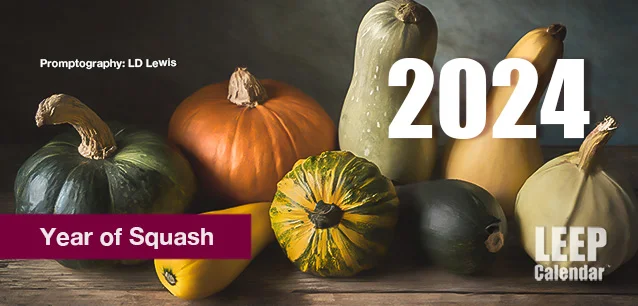 AD
AD
Today is: August 22
Scroll to explore events active on this date.
Additional Events on LEEP
LEEP INK FEATURES

August? Absolutely!
In August, we live through the Dog Days of Summer. It's hot and often humid, and those who can leave for better climates do. Down south, winter is in full force. August is also known as "the ...

In The Heat of July: July 2025 Events
Is it hot enough (or cold enough if you're below the equator) for you yet? There is actually a day for that! Like every month, I pick a diverse collection of events you may or may not know about. This ...

May Blooms: Events in May 2025
Along with October, May is one of the most densely packed months of the year. It's before the summer humidity and the last whole month of the school year. The weather is warming in t...
About 2024, the Year of Squash
Real Estate , Retail
Ends: Dec 31, 2024
DESCRIPTION:
2024 is the Year of Squash (the plant kind, not the sport or British drink).
Squash has been a staple in diets and agriculture for centuries and is known for its remarkable diversity. It is indigenous to the Americas and belongs to the genus Cucurbita, which encompasses multiple species and varieties cultivated and cherished in numerous cultures.
Squash traces back thousands of years, with its earliest cultivation believed to have occurred in Mesoamerica. Archaeological evidence suggests that squash is one of the first cultivated crops, originating more than 10,000 years ago in the Americas.
Cucurbita falls into four key categories:
Currently, hundreds of different types of squash are cultivated globally, traditionally in two groups: summer squash and winter squash.
Summer squashes are harvested when immature, and their skin is tender and edible; zucchini and yellow squash are well-known examples.
Winter squashes are harvested when fully mature, featuring hard, thick skins and a longer storage potential; examples include pumpkins, plus acorn, spaghetti, and butternut squashes.
Squash plants are known for their vigorous growth and sprawling vines, with some varieties capable of producing immense fruits. As a crop, they are valued for their edible fruit, seeds, and flowers in various culinary traditions.
The cultural significance of squash is notable, particularly among Native American tribes who regarded squash as one of the "Three Sisters" along with maize (corn) and beans. This trio of crops is traditionally grown together via companion planting to benefit each plant.
VIDEOS
SUPPORTING DOCUMENTS
Currently, this event does not have supporting documents.
ADDITIONAL IMAGES
Currently, this event does not have supporting images.
Where would you like to go now?
 AD
AD


/footer-logo.svg)
